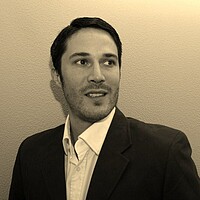Madrid's mega-casino dilemma: more smoking for more jobs?
Loading...
| Madrid
In an economy racked by widespread unemployment, is the opportunity to create tens of thousands of jobs worth granting an exception on Spain's two-year-old strict anti-smoking legislation?
That's the question currently facing Spain's government, as it considers meeting American casino mogul Sheldon Adelson’s condition to invest billions in a proposed massive casino complex, dubbed "EuroVegas," in the outskirts of Madrid.
In line with most European legislation, smoking has been forbidden indoors in Spain since 2011, when after years of pressure from health officials and civil society groups, Parliament overwhelmingly approved the ban. Research suggests smoking addiction in Spain is falling, along with health-related issues like asthma and costs to the overburdened social security system.
But Mr. Adelson sees the ban as a deterrence to EuroVegas's success, and has been campaigning for an exception to the law. And the conservative government of Prime Minister Mariano Rajoy, facing the ongoing economic crisis and accompanying record 27 percent unemployment, seems inclined to accede to the demand – given the prospect of securing Adelson's 17 billion euro investment, which the Las Vegas Sands owner claims could create some quarter-million jobs.
“Governments have to balance their decisions. The health of Spaniards is a priority, [but] the government will analyze all factors that have an impact on a bid that can generate jobs,” said Health Secretary Pilar Fargas recently, referring to EuroVegas.
Las Vegas Sands, the promoter, issued a statement last week confirming its plans were on track, denying press speculation that Adelson had cancelled plans for EuroVegas.
Any proposal will be considered, in an apparent reference to a legal reform that is reportedly under review by the government’s legal department that would involve allowing regional governments to grant exceptions to the smoking ban.
The government neither confirms nor denies an imminent reform. But Madrid regional leader Ignacio González, also of Mr. Rajoy’s Popular Party, said late in May he expects the smoking reform and other legal obstacles to be resolved this month. And in June Mr. González insisted the government should do everything it can to attract EuroVegas.
Although he declined to confirm the plan to transfer the power to grant smoking exceptions to regional governments, González did reiterate that if it were up to him, he would grant the exception to EuroVegas.
Rajoy has also indicated his support. After Adelson met privately with him in May, the Spanish leader said that while there was no decision yet on the smoking ban, “we do think it’s a good project because it will create many jobs in this country.” Adelson suggested separately he was confident the smoking ban would be lifted.
Exceptional?
Regional authorities have already agreed to many other conditions set by Adelson to build the complex, a venture that its promoters said would create tens of thousands of jobs.
An airport for executive jets will be built in the vicinity of EuroVegas, officials announced late in June. Adelson has also demanded fiscal incentives, land concessions, and public spending on surrounding infrastructure, as well as other exceptions to laws regarding gambling, social security, labor, and immigration, among others.
Construction of the sprawling complex would also require the regional or national government to underwrite part of the debt Adelson would accumulate – a challenge for the already heavily indebted Spain
But easing the smoking ban is the most controversial of all the perks. Not only is it very unpopular – more than 80 percent of people said they oppose a law reform to allow exceptions to anti-smoking laws, according to a May survey conducted by the Spanish Society of Family and Community Medicine – and certain to be challenged in the courts by anti-smoking groups and opposition political parties. It could also contravene European rules that are in the process of being drafted by the European Commission. Europe has a non-binding recommendation to protect against second-hand smoke in closed spaces.
The very mention of easing the smoking ban has raised intense opposition in Spain over health concerns and long term cost to the state, as well spurring angry accusation from the political opposition that the government is turning the country into a banana republic willing to sell its laws out to foreign investors.
The project may be in dire straits regardless of the smoking exception, Deutsche Bank warned last month.
“It’s our view that the project in Spain is potentially on its last legs,” the German bank said in a research paper, citing “concessions required by Las Vegas Sands to make the project work from a return perspective,” which are “too meaningful to overcome.… We struggle to believe a compromise can be found.”
Assuming all of the project's conditions are met, construction would begin early 2014.







